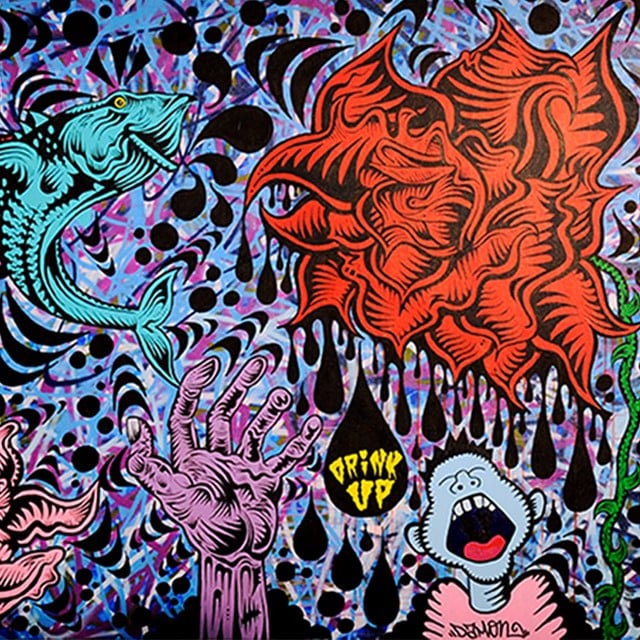Art & Exhibitions
Street Art Hashtag Spawns Novel Trademark Suit
Is a corporate brand trying to shut down a public art project?

Is a corporate brand trying to shut down a public art project?

Sarah Cascone

The art world is no stranger to litigation, nor to corporate synergy, but this may be a first: Wat-Aah, a company that sells bottled water branded to appeal to children, has sent a cease-and-desist letter to the Little Italy Street Art Project over the use of a hashtag, reports the New York Times.
When Wat-Aah launched “Drink Up,” a health awareness campaign designed to make water cool, they chose street art to convey their message, and #takingbackthestreets as the hashtag to promote it. The company teamed up on the campaign with Partnership for a Healthier America, a non-profit founded in conjunction with Michelle Obama’s “Let’s Move” initiative to end childhood obesity.
The Little Italy Street Art Project, a community group sponsoring murals in the Manhattan neighborhood, was incorporating the same hashtag into its own artworks, until it received a letter from Wat-Aah claiming the #takingbackthestreets hashtag was trademarked and demanding the Little Italy group stop using it.
In the past, we’ve seen street artists sue for the unauthorized reproduction of their work (see Street Artists Sue Terry Gilliam for “Blatant” Copyright Infringement and Street Artist Sues American Eagle For Copyright Infringement), but this may be the first time that a corporate brand has tried to shut down a public art project.
Trademark lawyer Richard Lehv told the Times that as far as he knew, hashtag trademarks are uncharted waters, legally speaking. “Yes, you can protect a phrase like ‘taking back the streets,’ but you don’t get a monopoly for any and all purposes. . . . putting a hashtag on something is a way of letting Instagram or Twitter index it. It speeds up a search. It doesn’t mean anyone owns it.”
The legal action is being met with raised eyebrows even among artists who have contributed to the Wat-Aah project. “There’s enough litigation in the world to now sue over a hashtag,” Australian street artist Damien Mitchell, who painted a Wat-Aah mural in Upper Manhattan, told the Times. “It’s a bit frivolous, to be honest.”
Artists have participated in the project in a number of ways: designing labels for limited-edition Wat-Aah bottles, creating murals in New York City, and donating artworks to an auction that benefited Partnership for a Healthier America. Wat-Aah allegedly feared that the Little Italy murals could create confusion over the company’s charitable efforts.
A quick Instagram search indicates that Wat-aah doesn’t have much to worry about. Scrolling through the first few pages of posts tagged #takingbackthestreets found plenty of photos promoting the ad campaign, but not a single image of the Little Italy murals, which are paid for by donations from artists and local businesses.
Nevertheless, the Little Italy Street Art Project’s organizer, Wayne Rada, has stopped using the hashtag—not that he’s happy about it. “Here’s my beef with them: It’s not about a hashtag,” he vented to the Times. “Wat-Aah is a for-profit business, but they went around telling artists their work was going to help a charity.”
The article also reports that some Wat-Aah artists have expressed skepticism over whether the charity is actually receiving any funds.
Wat-aah comes off as even more of a bully in light of the company’s having tapped pop star Ariana Grande, in addition to the First Lady, to promote its brand. Obama attended the opening event for “Wat-aah’s Taking Back the Streets” exhibition at New York’s New Museum last February, which included works by Shepard Fairey, Kenny Scharf, and other street artists, while Grande signed on as the brand’s spokesperson in October.